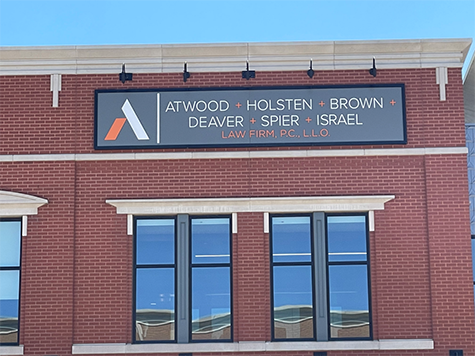Workers’ compensation is a benefit to working people that assists them financially and with medical care while they recover from injuries at work. While many people understand that workers’ compensation exists, when a work injury happens to you, you may have questions, such as:
What will workers’ compensation cover?
Workers’ compensation covers any “injury by accident or disease arising out of and in the course of their employment.” This generally requires that the injury result from some aspect your job duties (arising out of), and happen while you are on the clock or at work (in the course of), subject to some legal exceptions. This covers both acute injuries that happen in a specific point in time as well as cumulative injuries which are the result of your repetitive work. Some examples include:
- Back strain from lifting a heavy box;
- A broken bone from a fall while working;
- Neck injuries after a car accident if you were driving as part of your job;
- Carpel tunnel syndrome if caused by your continual repetitive work as part of your job;
Unless an injured worker is willfully negligent in causing their injury, workers’ compensation will not consider whether the employee is at fault for the accident when determining whether the employee is entitled to benefits. This means you are entitled to workers’ compensation benefits even where the injury might have been due to your own mistake or carelessness.
Can I treat with my own doctor?
Yes, in Nebraska your employer is required to provide you with a Form 50, which allows you to choose to seek treatment for your work injury from a doctor who has treated you or your immediate family member prior to the work accident, such as your primary care physician.
What should workers’ compensation pay?
Workers’ compensation has three types of benefits for work injuries: payment for medical care, wage replacement or disability benefits, and vocational rehabilitation services.
Workers’ compensation should cover all of your medical expenses and associated travel expenses incurred for treatment of your work injury. This includes medications, physical therapy, diagnostic testing, surgery, and mileage or other transportation costs for travel to your appointments. In addition, workers’ compensation covers future treatment you may need after you have recovered if that treatment is related to your original work injury.
If you miss time while you are recovering from your work injury, workers’ compensation will provide wage replacement weekly benefits at two-thirds of your pre-injury average weekly wage. These benefits are not taxable. Compensation is also payable if you are working part-time or for a reduced wage rate and therefore not earning your full wages due to your work injury. Once you have fully recovered, you will be entitled to a dollar amount based upon either the level of impairment to your body or the decrease in your ability to earn wages, depending on the type of injury and the part(s) of your body involved in the injury.
If you are unable to perform suitable work at similar earnings as compared to prior to your work injury, you are entitled to vocational services to help return you to work. This can include a job placement plan, retraining, or further education. You also received wage replacement benefits from workers’ compensation while participating in your vocational rehabilitation plan.
As another type of benefit available, a spouse and children of a worker who dies as a result of a work accident are entitled to benefits based upon the decedent’s wages, as well as funeral benefits.
What happens if my workers’ compensation claim is denied?
If your employer’s workers’ compensation insurer denies your claim, you may need to file a lawsuit in the Nebraska Workers’ Compensation Court. The compensation court is the only court in Nebraska that can resolve disputes between an injured worker and an employer who has denied the worker’s claim. Importantly, a lawsuit must be filed within two years of the date of the accident or the date the employer last paid for benefits, whichever is later.
How can an attorney help?
Attorneys familiar with workers’ compensation cases can come in at any stage in the process. If your claim is accepted, the attorney can provide assistance to ensure you receive all the benefits you are entitled to under Nebraska Workers’ Compensation Act while you focus on recovering from your work injury. During this time, workers’ compensation is often working with doctors to limit the value of your claim and it is helpful for you to have an advocate on your side to level the playing field. If your claim is denied, you need an attorney. Contact an attorney to help you determine whether to proceed with your claim. If you do have a claim, an attorney can file suit and help you proceed through the litigation process. If litigation is required, you are best served to have an experienced lawyer on your side.











